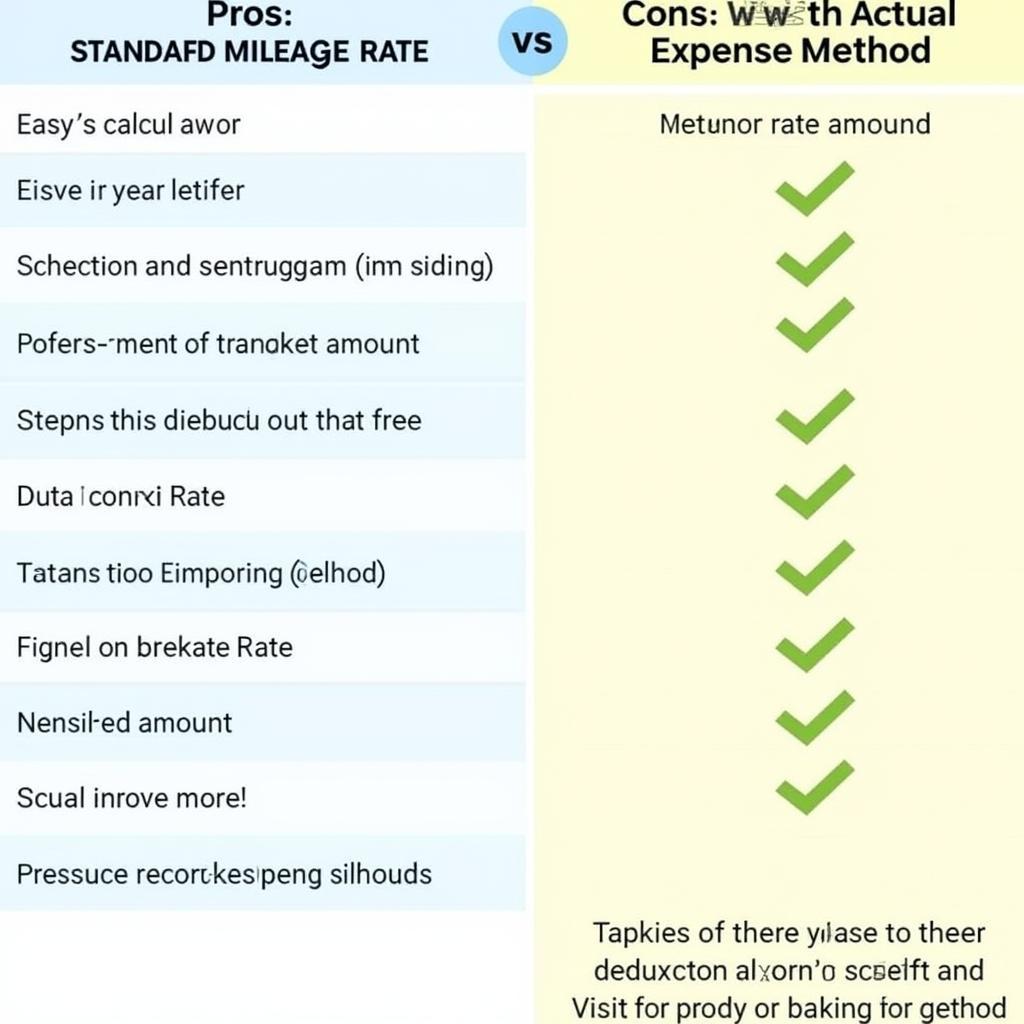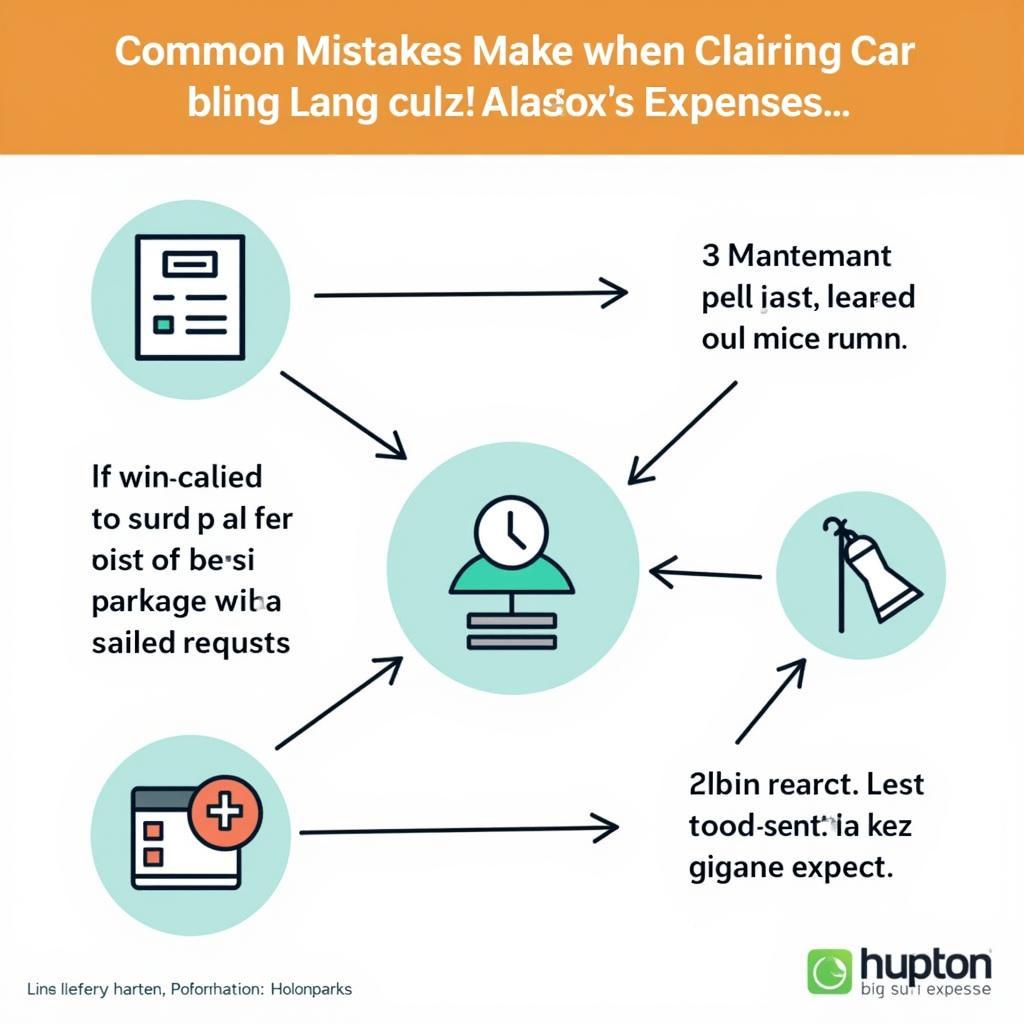Understanding Tax Deductions For Car Maintenance can save you significant money, whether you’re a business owner, rideshare driver, or use your vehicle for work purposes. Properly tracking and documenting your car-related expenses can make tax season less stressful and more rewarding. This article will guide you through the intricacies of claiming these deductions, helping you maximize your savings and avoid potential pitfalls.
Knowing whether your car maintenance falls under business use is the first step in claiming deductions. For example, if you’re an independent contractor and use your vehicle to visit clients, a portion of your car maintenance oil change could be deductible. It’s vital to understand these distinctions to avoid any issues with the IRS.
What Car Maintenance Expenses Are Tax Deductible?
Various car maintenance expenses can be tax deductible, but the key lies in demonstrating their direct connection to your business or work-related activities. These deductible expenses often include repairs, oil changes, tire rotations, and even car park maintenance fees. Meticulous record-keeping is essential to substantiate these deductions.
Keeping detailed records not only helps justify your deductions but also provides a clear picture of your vehicle’s maintenance history. This can be invaluable in identifying recurring issues and planning for future expenses.
 Car Maintenance Tax Deductible Expenses
Car Maintenance Tax Deductible Expenses
How to Calculate Car Maintenance Tax Deductions
Calculating your car maintenance tax deductions involves accurately tracking your mileage and expenses. Two primary methods exist: the standard mileage rate and the actual expense method. Understanding the nuances of each method is crucial to optimizing your deductions. The standard mileage rate simplifies calculations, while the actual expense method might be more beneficial for those with higher vehicle expenses, such as uber car maintenance costs.
Choosing the right method depends on your individual circumstances and the type of vehicle you use. Consulting with a tax professional can provide personalized guidance.
Standard Mileage Rate vs. Actual Expense Method
The standard mileage rate method simplifies calculations by using a predetermined rate set by the IRS. The actual expense method, on the other hand, requires meticulous tracking of all car-related expenses. Knowing can you write off car repairs and maintenance tax deductions is an important aspect to grasp when choosing between these two options.
Each method has its advantages and disadvantages. The standard mileage rate offers simplicity, while the actual expense method offers potential for higher deductions.
 Standard Mileage vs. Actual Expense Method Comparison
Standard Mileage vs. Actual Expense Method Comparison
Record Keeping Best Practices for Car Maintenance Deductions
Maintaining accurate records is paramount when claiming car maintenance tax deductions. A detailed logbook should include the date, purpose of the trip, mileage, and cost of all maintenance and repairs. Organized records streamline the deduction process and provide evidence should the IRS inquire. Think of it as an investment in peace of mind.
Remembering every car trip and expense can be challenging, so establishing a consistent recording system is vital. Utilize apps, spreadsheets, or dedicated logbooks to stay organized.
Tips for Maintaining Accurate Records
- Use a dedicated mileage tracking app
- Keep all receipts for maintenance and repairs
- Note the business purpose of each trip
- Review and organize your records regularly
“Accurate record-keeping is the cornerstone of a successful tax deduction strategy,” says John Smith, CPA at Smith & Jones Accounting. “Don’t underestimate the importance of meticulous documentation.”
Common Mistakes to Avoid
Overlooking essential documentation or miscalculating mileage are common pitfalls that can lead to complications. Understanding is car maintenance a business expense correctly and its application within your tax filing can prevent errors and ensure you claim the maximum deduction you’re entitled to.
 Common Car Maintenance Tax Deduction Mistakes
Common Car Maintenance Tax Deduction Mistakes
“Failing to keep accurate records is like leaving money on the table,” warns Jane Doe, a tax advisor with Doe & Associates. “Ensure your records are comprehensive and readily available.”
Conclusion
Navigating tax deductions for car maintenance can seem complex, but with careful planning and accurate record-keeping, you can maximize your savings. By understanding the eligible expenses, choosing the right calculation method, and avoiding common mistakes, you can confidently approach tax season knowing you’ve optimized your deductions. Contact us at AutoTipPro for further assistance. Our number is +1 (641) 206-8880 and our office is located at 500 N St Mary’s St, San Antonio, TX 78205, United States.






Leave a Reply